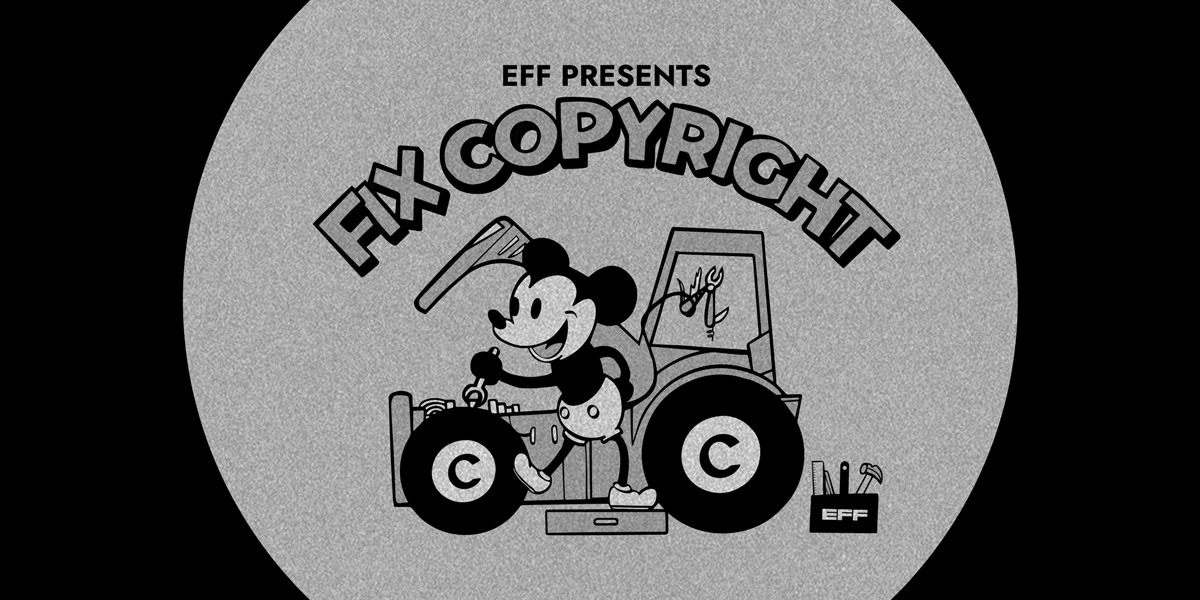If the Supreme Court doesn’t reverse a lower court’s ruling, internet service providers (ISPs) could be forced to terminate people’s internet access based on nothing more than mere accusations of copyright infringement. This would threaten innocent users who rely on broadband for essential aspects of daily life. EFF—along with the American Library Association, the Association of Research Libraries, and Re:Create—filed an amicus brief urging the Court to reverse the decision.
The Stakes: Turning ISPs into Copyright Police
Among other things, the Supreme Court approving the appeals court’s findings will radically change the amount of risk your ISP takes on if a customer infringes on copyright, forcing the ISP to terminate access to the internet for those users accused of copyright infringement—and everyone else who uses that internet connection.
This issue turns on what courts call “secondary liability,” which is the legal idea that someone can be held responsible not for what they did directly, but for what someone else did using their product or service.
The case began when music companies sued Cox Communications, arguing that the ISP should be held liable for copyright infringement committed by some of its subscribers. The Court of Appeals for the Fourth Circuit agreed, adopting a “material contribution” standard for contributory copyright liability (a rule for when service providers can be held liable for the actions of users). The lower court said that providing a service that could be used for infringement is enough to create liability when a customer infringes.
In the Patent Act, where Congress has explicitly defined secondary liability, there’s a different test: contributory infringement exists only where a product is incapable of substantial non-infringing use. Internet access, of course, is overwhelmingly used for lawful purposes, making it the very definition of a “staple article of commerce” that can’t be liable under the patent framework. Yet under the Fourth Circuit’s rule, ISPs could face billion-dollar damages if they fail to terminate users on the basis of even flimsy or automated infringement claims.
Our Argument: Apply Clear Rules from the Patent Act, Not Confusing Judge-Made Tests
Our brief urges the Court to do what it has done in the past: look to patent law to define the limits of secondary liability in copyright. That means contributory infringement must require more than a “material contribution” by the service provider—it should apply only when a product or service is especially designed for infringement and lacks substantial non-infringing uses.
The Human Cost: Losing Internet Access Hurts Everyone
The Fourth Circuit’s rule threatens devastating consequences for the public. Terminating an ISP account doesn’t just affect a person accused of unauthorized file sharing—it cuts off entire households, schools, libraries, or businesses that share an internet connection.
- Public libraries, which provide internet access to millions of Americans who lack it at home, could lose essential service.
- Universities, hospitals, and local governments could see internet access for whole communities disrupted.
- Households—especially in low-income and communities of color, which disproportionately share broadband connections with other people—would face collective punishment for the alleged actions of a single user.
With more than a third of Americans having only one or no broadband provider, many users would have no way to reconnect once cut off. And given how essential internet access is for education, employment, healthcare, and civic participation, the consequences of termination are severe and disproportionate.
What’s Next
The Supreme Court has an opportunity to correct course. We’re asking the Court to reject the Fourth Circuit’s unfounded “material contribution” test, reaffirm that patent law provides the right framework for secondary liability, and make clear that the Constitution requires copyright to serve the public good. The Court should ensure that copyright enforcement doesn’t jeopardize the internet access on which participation in modern life depends.
We’ll be watching closely as the Court considers this case. In the meantime, you can read our amicus brief here.



